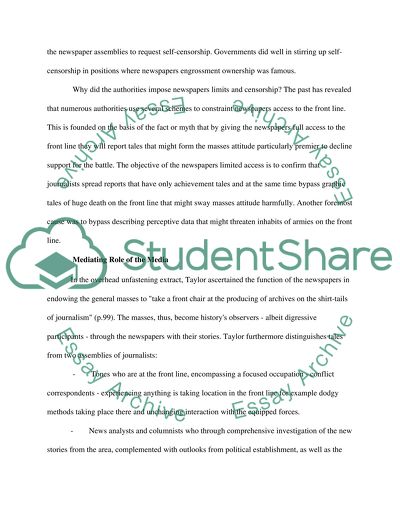Cite this document
(“Restriction of Media Coverage during Wars Essay”, n.d.)
Retrieved de https://studentshare.org/journalism-communication/1390161-restriction-of-media-coverage-during-wars
Retrieved de https://studentshare.org/journalism-communication/1390161-restriction-of-media-coverage-during-wars
(Restriction of Media Coverage During Wars Essay)
https://studentshare.org/journalism-communication/1390161-restriction-of-media-coverage-during-wars.
https://studentshare.org/journalism-communication/1390161-restriction-of-media-coverage-during-wars.
“Restriction of Media Coverage During Wars Essay”, n.d. https://studentshare.org/journalism-communication/1390161-restriction-of-media-coverage-during-wars.


